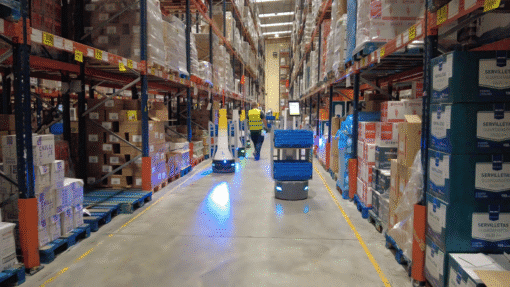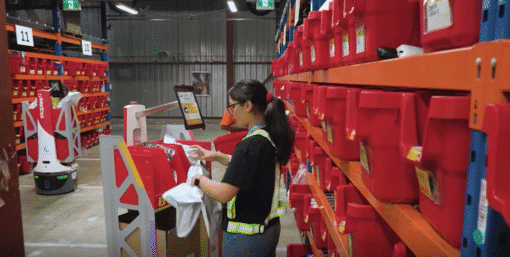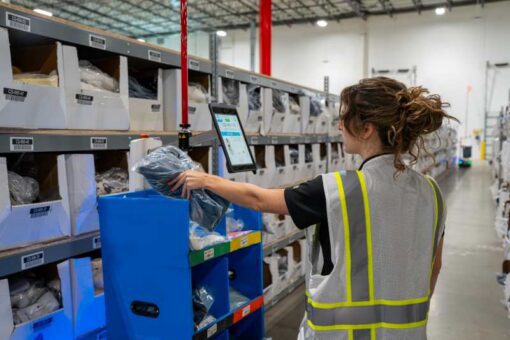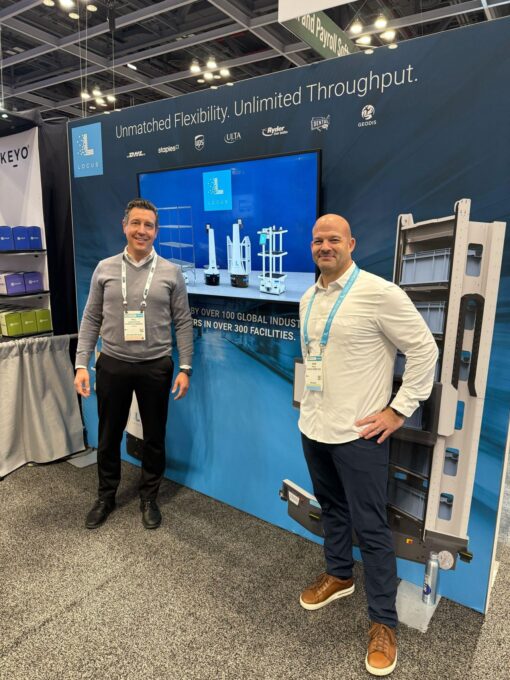WP: How to achieve 400 UPH with Locus Fast Pick
WP: How to achieve 400 UPH with Locus Fast Pick Download Now!
10 Million Picks: What KSP Fulfillment Reveals About the Future of 3PL Automation
Mary Hart, Sr. Content Marketing Manager
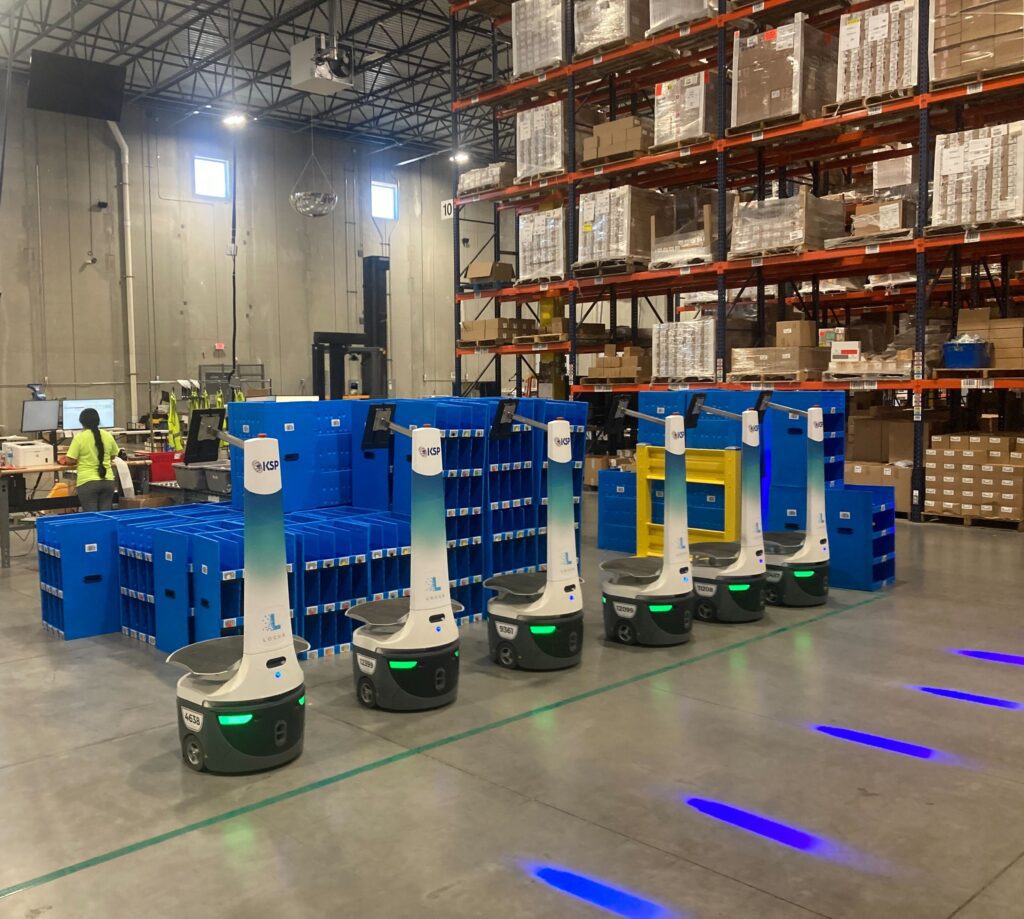
When I sat down with Mike Geiger, VP of IT at KSP Fulfillment, for an episode of the “Warehouse Automation Matters” podcast, one number kept coming up: 10 million robotic picks in just over a year. That milestone tells a story that’s not just about volume, but about labor stability, culture evolution, tech scalability, and what’s ahead for the 3PL industry.
Why 10 Million Picks Matters
For KSP, that figure translates to roughly 1 to 1.5 million picks per month, which is a pace that can expose inefficiencies in manual workflows, labor variability, and forecasting risk. But robotics have helped the company tame those risks. Associates who once walked long distances daily are now seeing less fatigue and throughput is becoming predictable enough that planning and resource allocation happen weeks in advance.
That kind of scale isn’t unique in aspiration. According to Boston Consulting Group, well-executed automation programs achieve 20-50% improvements in service levels and 25-50% reductions in fulfillment costs among leading consumer-oriented businesses.
Labor: From Volatility to Predictability
Labor in fulfillment has always been a wild card with turnover, seasonal spikes, absences, and variable skill levels combining to make labor spend unpredictable. KSP’s approach with robotics delivered something different. As Geiger put it, robotics are a “no-nonsense solution” that helps stabilize labor costs and reduce training spend, while lifting the burden off workers.
Culture Shift and Buy-In
In order to guarantee a smooth adoption of robotics, KSP prepared the people side of their organization with training before go-live, transparency in what change would look like, and giving associates ownership over metrics.
“Even before we were live, there was such a buzz amongst the associates,” Geiger told me. Visible scoreboards, real-time metrics, and framing automation as a tool, and not a threat, helped shift attitudes.
That echoes findings from broader automation case studies showing that error rates drop sharply when workers adopt systems designed with visibility and feedback in mind. With robotic picking systems, accuracy often reaches 99+%, which in turn reduces returns, rework, and exception handling costs.
Continuous Improvement & Scalability
KSP treats automation not as a fixed event, but as a journey. One of Geiger’s key refrains was “What’s the next thing we can automate?” That perspective allows them to iterate, adjust, and scale.
Flexible models like Robots-as-a-Service (RaaS) have played a big role. For instance, a Packaging Technology Today article by our CEO, Rick Faulk, states that RaaS enables many 3PLs to scale capacity seasonally without permanently increasing fixed costs.
In recent months, KSP added 25 robots at a time through the RaaS model to match peak demand, with more on the way. This plug-and-play flexibility allows the team to flex up for seasonal spikes while maintaining stable ratios between people and robots
That agility serves internal operations and strengthens customer relationships. Clients can trust that fulfillment capacity won’t be the limiting factor, no matter the season.
What This Means for 3PLs Looking Ahead
- Automation is a competitive necessity. 3PLs falling behind will face eroding margins, overworked labor, and inconsistency.
- The investment must go beyond hardware. Culture, training, metrics visibility, flexible capacity planning matter just as much.
- Using flexible business models like RaaS can lower barriers to entry and reduce risk.
KSP’s story illustrates a truth that extends across 3PLs: automation is the foundation for success. And milestones like 10 million picks are about robots, people, processes, and customers aligning toward continuous improvement.
BIO:
Written by Mary Hart, the Senior Content Marketing Manager at Locus Robotics. With 10+ years of experience covering technology and warehouse automation trends, Hart helps logistics leaders understand how fulfillment automation can transform operations.

